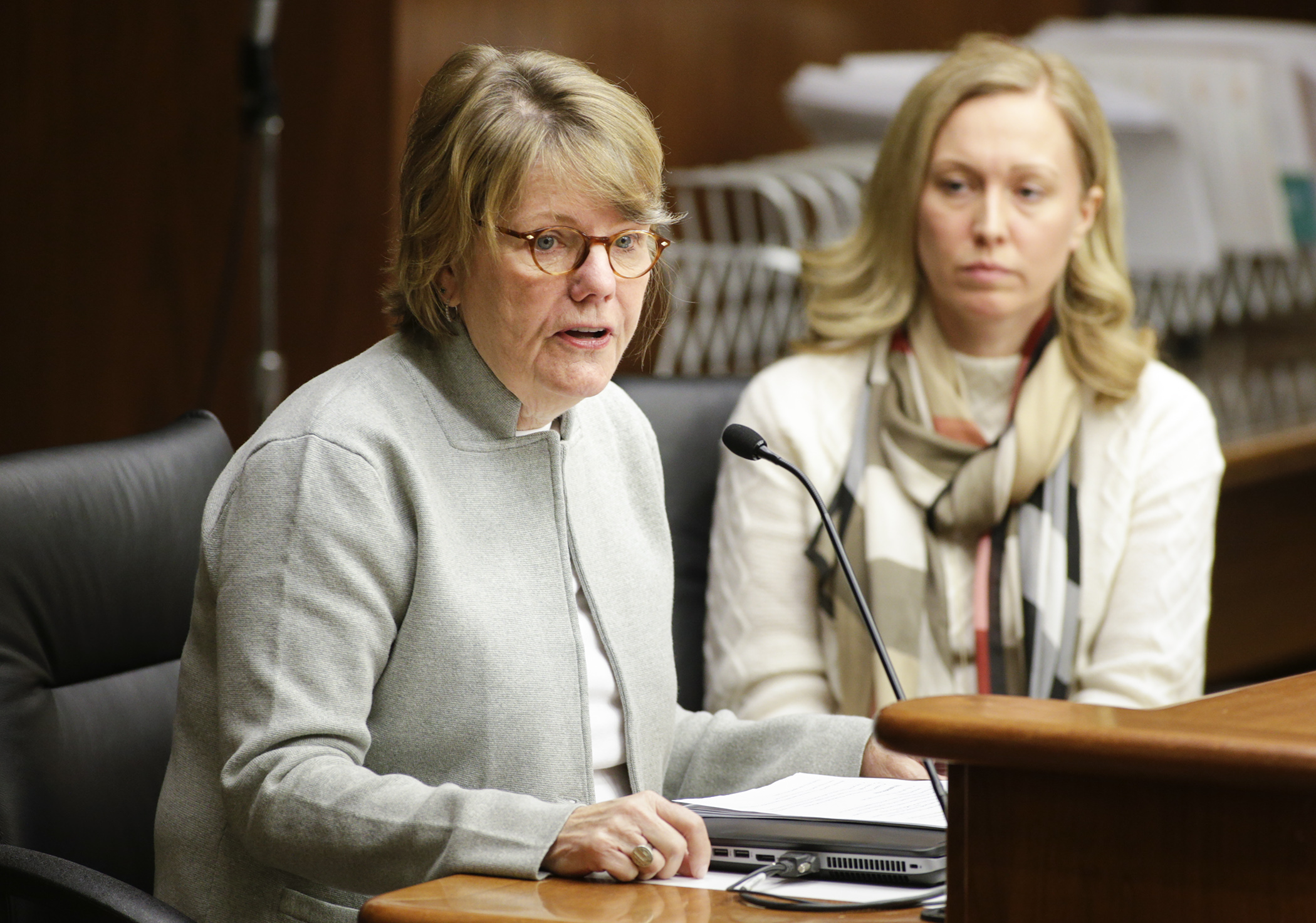'Breakfast after the Bell' program would increase student access to first meal of the day

Providing breakfast may be one of the simplest ways to improve student outcomes, according to school administrators and staff.
Sponsored by Rep. Heather Edelson (DFL-Edina), HF1037, as amended, would provide state aid to bolster school breakfast programs. The bill was held over Thursday by the House Education Finance Division for possible omnibus bill inclusion. There is no Senate companion.
School meals are mostly funded through the federal government, with some assistance from the state through the aid formula. The bill would incentivize more schools to offer breakfast by chipping in enough state aid to cover the difference between federal dollars and what it costs districts to provide breakfast.
Colleen Moriarty, executive director of Hunger Solutions Minnesota, said the legislation is a commonsense approach to tackling childhood hunger. She also referenced a new report from the Food Research and Action Center evaluating nationwide school breakfast participation, which placed Minnesota in the bottom 10 states.
“Low participation in the school breakfast program is costly on many levels,” she said. “Students miss out on educational and health benefits associated with proper nutrition, and states and school districts miss out on up to $12 million in federal funding that is available to support school breakfast.”
The bill stipulates that participating districts must use one of three “breakfast after the bell” models. Each model requires that all students — regardless of lunch-funding status — be given breakfast after the school day starts, among their peers.
Currently, if breakfast is served, it’s usually in the cafeteria, before school, to kids who qualify for free or reduced-price lunch. This creates a stigma, and dissuades students from accepting the often much-needed first meal of the day, Edelson said.
“HF1037 takes a big step forward in providing breakfast to more children who could use another opportunity to get nutrition in their bodies to help their minds at the start of the school day,” she said.
Participating schools would need to obtain all eligible federal breakfast dollars before the state kicks in reimbursements. The bill would appropriate an unspecified amount in Fiscal Years 2020 and 2021 to fund the program. A fiscal note estimated that in the first year it would cost the state at least $6 million.
Rep. Ron Kresha (R-Little Falls), inquired about technical aspects of the funding, wondering if it was possible to use a district’s existing nutritional fund balances to cover some of the cost of the program. Nonpartisan House staff indicated that strict federal regulations would prohibit it.
Related Articles
Search Session Daily
Advanced Search OptionsPriority Dailies
Ways and Means Committee OKs proposed $512 million supplemental budget on party-line vote
By Mike Cook Meeting more needs or fiscal irresponsibility is one way to sum up the differences among the two parties on a supplemental spending package a year after a $72 billion state budg...
Meeting more needs or fiscal irresponsibility is one way to sum up the differences among the two parties on a supplemental spending package a year after a $72 billion state budg...
Minnesota’s projected budget surplus balloons to $3.7 billion, but fiscal pressure still looms
By Rob Hubbard Just as Minnesota has experienced a warmer winter than usual, so has the state’s budget outlook warmed over the past few months.
On Thursday, Minnesota Management and Budget...
Just as Minnesota has experienced a warmer winter than usual, so has the state’s budget outlook warmed over the past few months.
On Thursday, Minnesota Management and Budget...